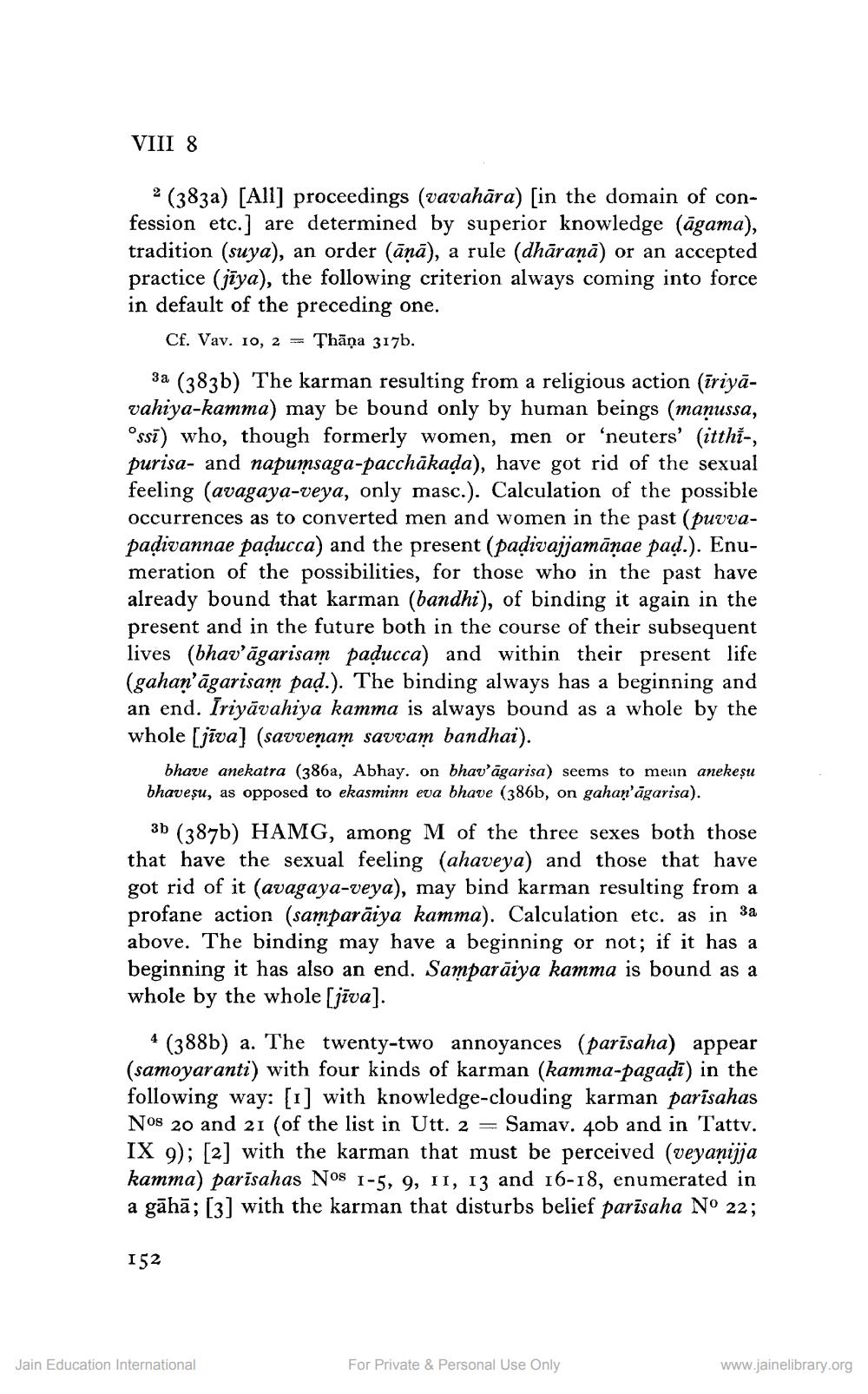________________
VIII 8
2 (383a) [All] proceedings (vavahāra) [in the domain of confession etc.] are determined by superior knowledge (āgama), tradition (suya), an order (āņā), a rule (dhāraņā) or an accepted practice (jīya), the following criterion always coming into force in default of the preceding one.
Cf. Vav. 10, 2 = Thāņa 317b. 38 (383b) The karman resulting from a religious action (īriyāvahiya-kamma) may be bound only by human beings (maņussa, Ossi) who, though formerly women, men or ‘neuters' (itthi-, purisa- and napumsaga-pacchākada), have got rid of the sexual feeling (avagaya-veya, only masc.). Calculation of the possible occurrences as to converted men and women in the past (puvvapaờivannae paducca) and the present (padivajjamānae pad.). Enumeration of the possibilities, for those who in the past have already bound that karman (bandhi), of binding it again in the present and in the future both in the course of their subsequent lives (bhav'āgarisam paducca) and within their present life (gahan'āgarisam pad.). The binding always has a beginning and an end. Iriyāvahiya kamma is always bound as a whole by the whole (jīva] (savvenam savvam bandhai).
bhave anekatra (386a, Abhay. on bhav’āgarisa) seems to mean anekeșu bhaveșu, as opposed to ekasminn eva bhave (386b, on gahan'āgarisa).
3b (387b) HAMG, among M of the three sexes both those that have the sexual feeling (ahaveya) and those that have got rid of it (avagaya-veya), may bind karman resulting from a profane action (samparāiya kamma). Calculation etc. as in 3a above. The binding may have a beginning or not; if it has a beginning it has also an end. Samparāiya kamma is bound as a whole by the whole [jīva).
4 (388b) a. The twenty-two annoyances (parīsaha) appear (samoyaranti) with four kinds of karman (kamma-pagađī) in the following way: [1] with knowledge-clouding karman parīsahas Nos 20 and 21 (of the list in Utt. 2 = Samav. 40b and in Tattv. IX 9); [2] with the karman that must be perceived (veyaņijja kamma) parīsahas Nos 1-5, 9, 11, 13 and 16-18, enumerated in a gāhā; [3] with the karman that disturbs belief parīsaha N° 22;
152
Jain Education International
For Private & Personal Use Only
www.jainelibrary.org




